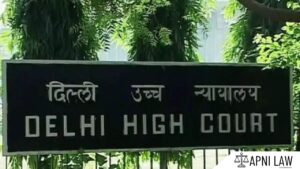In a significant ruling, the Supreme Court of India has decided not to cancel the NEET-UG examination conducted on May 5 this year, despite allegations of paper leaks and malpractice. The bench, comprising Chief Justice DY Chandrachud and Justices JB Pardiwala and Manoj Misra, clarified that an exam should only be cancelled when its integrity is compromised on a systemic level, making it impossible to distinguish between tainted and untainted candidates.
The Court outlined that cancelling an examination, whether for professional course admissions or government recruitment, is justified solely in instances where widespread malpractice has occurred. Such decisions are only valid if separating the dishonest candidates from the honest ones is unfeasible.
The bench emphasised the necessity of a thorough analysis to determine whether conducting a new exam would be a proportionate response. “Courts must evaluate the extent of unfair practices and consider the possibility of distinguishing between tainted and untainted candidates,” the Court stated. “A holistic view is required.”
Further discussions
In elaborating on the legal standards, the Court highlighted key factors for consideration in deciding whether to annul an exam:
- The proportionality of a new examination to the grievance and the extent to which the exam’s integrity was compromised.
- The number or proportion of students suspected of malpractice.
- The feasibility of identifying candidates involved in malpractice.
- Whether the malpractice allegations are substantiated by evidence, including investigative reports.
Regarding the requirement for corroborative material on malpractice, the Court noted that the standard should not be excessively stringent. There must be a real possibility of systemic issues supported by sufficient evidence. Though this evidence need not conclusively prove widespread malpractice.
In the specific context of the NEET-UG 2024 exam, the Court considered various factors. It includes inflated marks and ranks, question paper leaks, other malpractices, registration window reopenings, city changes during form corrections. There are compensatory marks awarded to 1563 students.
After reviewing the evidence, the Court concluded that there was no indication of a systemic paper leak. Additionally, it was deemed possible to separate the tainted candidates from the untainted ones, making exam cancellation unnecessary.
Conclusion
“The evidence does not currently support claims of widespread malpractice compromising the exam’s integrity,” the Court stated. “There are no signs of systemic cheating, such as widespread dissemination of the question paper via social media or sophisticated electronic means. The beneficiaries of the leak in Hazaribagh and Patna are identifiable, and the CBI investigation has pinpointed the students involved. This allows us to distinguish between fraudulent and honest candidates, negating the need for a re-exam.”
The Supreme Court’s decision underscores the importance of maintaining the integrity of competitive exams. Also, ensuring that only proven, widespread malpractice warrants their cancellation.












